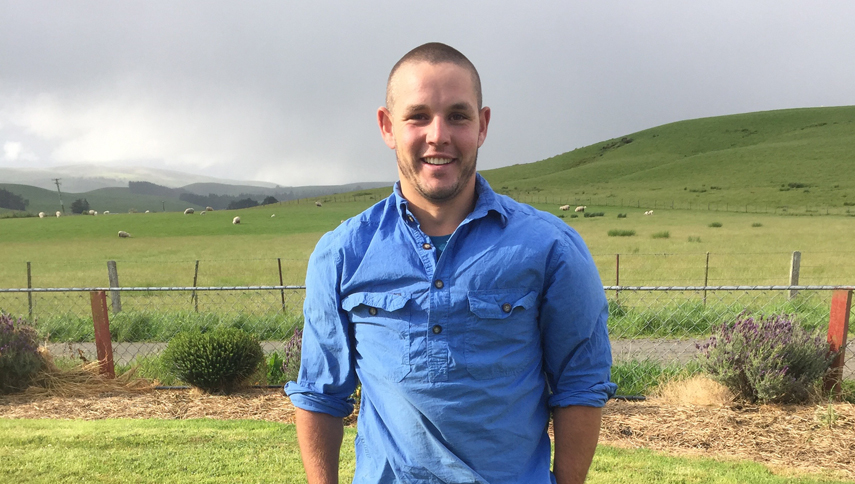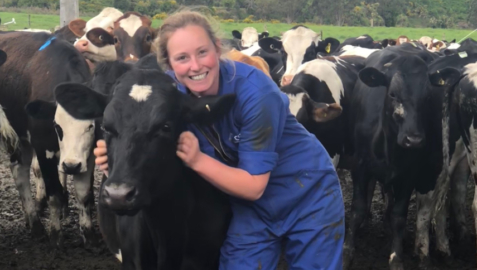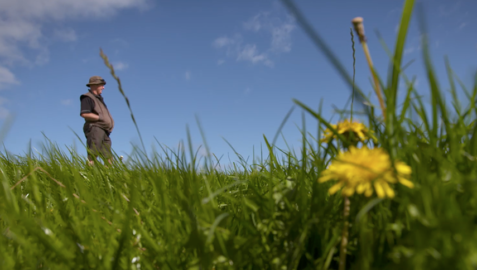
Stay connected and keep Farmstrong
Module Overview
Sharing the ups and downs of farming with mates is an important part of staying on top of your game and enjoying the job
Dave Ingham’s career in the sheep and beef industry is off to a flying start. Since completing his studies at Lincoln he has been working at Linnburn Station, which runs around 8,500 half-bred ewes and 500 Angus cows.
Life has not always been easy
‘I’m a 24-year-old shepherd, I work on a 9000ha sheep and beef breeding and finishing farm and my role is looking after the farm’s finishing stock.’
A while back Dave noticed he was feeling stressed and lacking motivation. ‘I had a great job and was doing well. But something wasn’t quite right, I wasn’t getting the same enjoyment out of things I usually would. I wasn’t talking to or catching up with mates as much and struggled talking to them when I did. I started isolating myself, because it was easier to be alone than to make the effort. I’d come up with poor excuses not to go to things.’
Dave says things reached the point where it all got on top of him and ‘depression and anxiety ruled my life.’ The turning point was a simple chat with his boss, who noticed something was amiss. ‘That one five-minute conversation made me realise there was something seriously wrong and I needed to change. To be perfectly honest without that moment I don’t know where I would be today.’
Keep talking and stay connected
Dave is keen to spread the word about the importance of rural communities openly discussing mental health issues, highlighting the importance of managing stress and supporting one another. ‘The really important thing is to talk. Don’t be afraid to say how you’re feeling or what you think, bottling it up doesn’t work. The relief was huge once I finally got off my chest what was going on.’
While he was studying at Lincoln, Dave also helped set up the volunteer farmer relief group the Handy Landys. ‘It was a support network for farmers, where those in need of a hand could go on our website and ask for help, and we would organise a group of volunteers to go out on farm for the day.’
He soon noticed that the benefits of the excursions often outweighed the extra pairs of hands. ‘We would take the BBQ and have a feed and a couple of beers. Sitting down having a yarn and taking the farmers mind off farming was often more relief than the physical labour we offered.’
These days Dave is proactive about looking after himself. He aims to spend at least 30 minutes a day doing something that isn’t farm-related. ‘For me it could be reading a book, getting in the kitchen and actually spending time making something, training dogs, going fishing or a game of golf. It doesn’t matter what it is but just doing something every day that you enjoy takes your mind off the farm.’
Dave’s Top Wellbeing Tips
Keep active – ‘I found going for a run was a really good way to get things out of my head and refresh, I’d go for a run at lunch time not because I was trying to get fit, but just because it made me feel better.’
Stay connected – ‘Don’t be afraid to say how you’re feeling or what you think, bottling it up doesn’t work. Employers need to encourage their staff to be open with them and tell them how they’re feeling and what they think.’
Take time off farm – ‘There is never the right time on a farm, so just make time for things off the farm and work them in to the schedule like you would any other tasks. Mental wellbeing is just as essential as on-farm jobs like scanning and shearing and needs to be treated with the same level of importance.’
Keep learning – ‘Go to off-farm courses, discussion groups, or conferences. Getting away from the coal face helps you see the environment you’re working in from a different perspective. The afternoon you have off will be made up for tenfold by having refreshed staff thinking clearly with fresh ideas.’
Talk – ‘Be open and honest with yourself and your team. When asked how you are doing, be honest. Get your thoughts off your chest before they amount to something more and it’s ok to say, I’ve had a shit day.’
Don’t be afraid to ask for help – ‘It’s ok to not be ok. It is not ok to pretend you are. Act early. You will regret the time you waste thinking it will just get better.’


